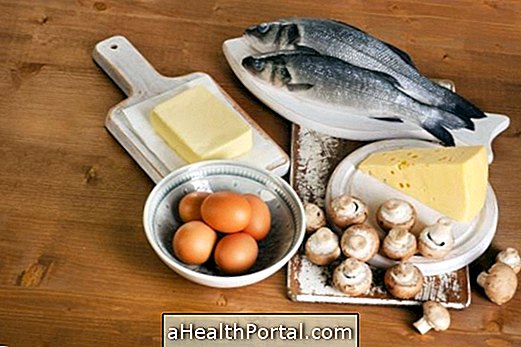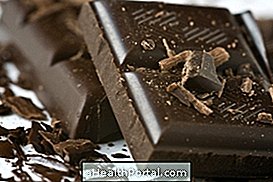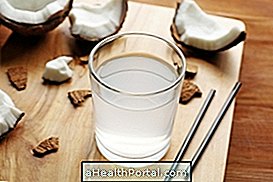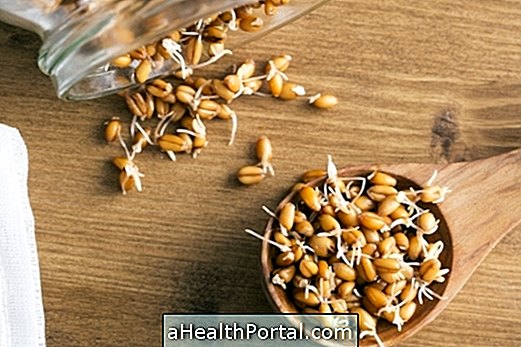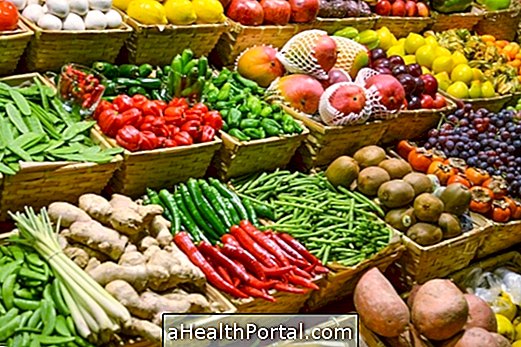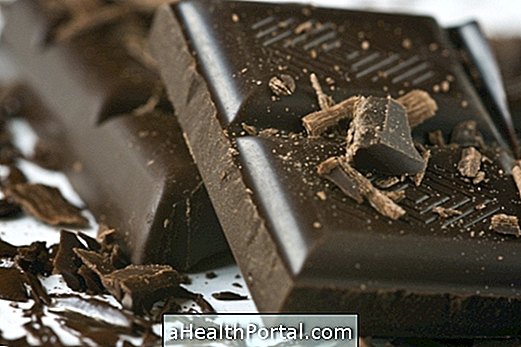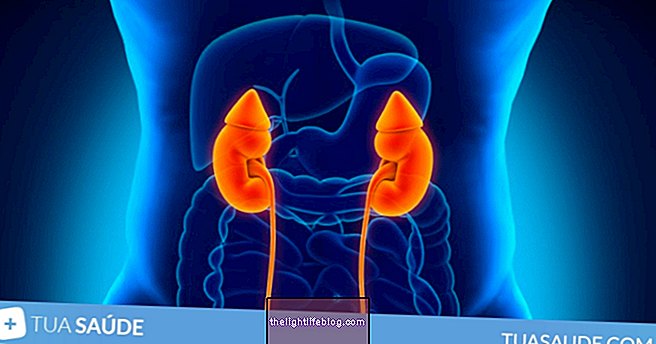Foods rich in Vitamin A are primarily liver, egg yolk and fish oils. Vegetables such as carrots, spinach, mango and papaya are also good sources of this vitamin because they contain carotenoids, a substance that in the body will be transformed into vitamin A.
Vitamin A has functions such as maintaining vision, skin and hair health, strengthening the immune system and ensuring the proper functioning of the reproductive organs. As an antioxidant, it is also important for the prevention of premature aging, cardiovascular disease and cancer.
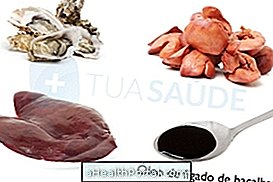

List of foods rich in vitamin A
The table below shows the amount of vitamin A present in 100 g of food.
| Foods rich in vitamin A of animal origin | Vitamin A (mcg) | Energy |
| Grilled beef liver steak | 14574 | 225 kcal |
| Pasteurized Cow's Milk | 39 | 61 kcal |
| Fish oil | 300 | 900 kcal |
| Butter without salt | 672 | 754 kcal |
| Fresh minced cheese | 270 | 243 kcal |
| Boiled egg | 500 | 146 kcal |
| Foods rich in vitamin A of plant origin | Vitamin A (mcg) | |
| Raw carrot | 1326 | 34 kcal |
| Sliced cooked carrot | 900 | 30 kcal |
| Roasted sweet potato | 298 | 77 kcal |
| Mango | 118 | 51 kcal |
| Cooked spinach | 621 | 67 kcal |
| Cabbage butter | 384 | 90 kcal |
| Beautiful papaya | 148 | 45 kcal |
| Tomato | 60 | 15 kcal |
Vitamin A can also be found in supplements such as fish liver oil, which can be used in cases of vitamin A deficiency following medical or nutritionist's guidance. Symptoms of lack of vitamin A may manifest with skin lesions, frequent infections, and night blindness, which is the difficulty of adapting vision in dimly lit places. Usually the damage caused by the lack of vitamin A is reversible and vitamin supplements should be taken to make up for the deficiency, according to medical advice.
Recommended Daily Dose of Vitamin A
Vitamin A needs vary according to the stage of life:
- Babies from 0 to 6 months: 400 mcg / day
- Babies 6 to 12 months: 500 mcg / day
- Children 1 to 3 years: 300 mcg / day
- Children 4 to 8 years: 400 mcg / day
- Boys 9 to 13 years: 600 mcg / day
- Girls 9 to 13 years: 600 mcg / day
- Men from 14 years: 900 mcg / day
- Woman from 14 years: 700 mcg / day
- Pregnant women: 750 to 770 mcg / day
- Infants: 1200 to 1300 mcg / day
These values are the minimum amount of vitamin A that one should ingest per day to maintain the proper functioning of the organism.
A diversified diet is enough to achieve the recommended daily dose of vitamin A, so be careful when using vitamin supplements without medical or nutritionist guidance as too much vitamin A also causes health damage. Some of the symptoms related to the excess of this vitamin are headaches, tiredness, blurred vision, drowsiness, nausea, loss of appetite, itching and peeling of the skin and hair loss.
See other important skin and hair foods in:
- Foods That Prevent Hair Loss
- Foods for strengthening hair
- 5 foods for perfect skin
